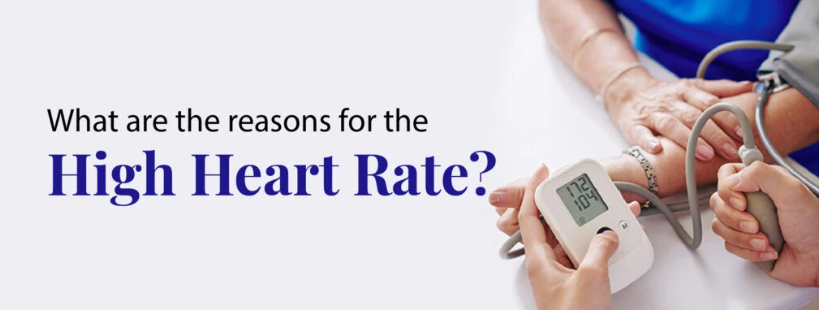
If you’ve ever gone out for a run and thought, “Why is my heart rate so high when I run?” you’re definitely not alone. It’s a common question among runners, especially those who are newer to the sport or those pushing themselves harder than usual. While an increased heart rate is a normal part of exercising, sometimes it feels like your heart is beating faster than it should, which can leave you wondering if something is wrong.
In this guide, we’ll dive into why your heart rate might be so high when you run, what factors contribute to this, what doctors say, and some possible solutions to help you manage it. Understanding your heart rate is crucial for running safely and improving your fitness over time.
Why Is My Heart Rate So High When I Run?
Your heart rate naturally increases during physical activities like running because your heart works harder to pump oxygen-rich blood to your muscles. But when your heart rate feels too high when you run, it can be due to several factors.

Here are some reasons why your heart rate is so high when you run:
- Fitness Level: If you’re new to running or haven’t exercised in a while, your cardiovascular system isn’t fully conditioned yet. This means your heart has to work harder to keep up with the demand, making your heart rate higher when you run.
- Pacing Yourself: Running too fast for your fitness level is one of the main reasons your heart rate is so high when you run. If you’re pushing yourself too hard, your heart works extra to support the intense effort, which can cause it to race.
- Dehydration: When you’re dehydrated, your blood volume decreases, forcing your heart to pump harder to circulate blood through your body. This can be a big reason why your heart rate spikes so high when you run.
- Weather Conditions: Running in hot or humid weather causes your body to work overtime to cool itself. This extra work can raise your heart rate quickly, making you wonder why your heart rate is so high when you run in these conditions.
- Stress or Anxiety: Stress and anxiety can elevate your heart rate even before you start running. If you’re stressed or anxious about the run itself, or anything else in life, it can make your heart rate go up more than usual when you run.
- Caffeine or Stimulants: Consuming caffeine, energy drinks, or pre-workout supplements before a run can also be a culprit. These stimulants can increase your heart rate, making it feel unusually high during exercise.
- Overtraining: Running too frequently without enough rest can lead to overtraining. This condition puts extra strain on your body, causing both your resting and active heart rates to be higher than normal, which can make your heart rate so high when you run.
What Doctors Say About a High Heart Rate While Running
Doctors agree that your heart rate will naturally increase when you exercise, but they also emphasize the importance of staying within safe limits. A high heart rate when running isn’t always a problem, but it’s essential to understand what’s normal for your body.
Dr. Sarah Greene, a cardiologist, explains: “Your heart rate will rise during exercise, but it’s important to stay within your target zone. For most people, this is 50% to 85% of their maximum heart rate.”
You can calculate your maximum heart rate by subtracting your age from 220. For example, if you’re 30, your maximum heart rate would be about 190 beats per minute (BPM). When running, you should aim to stay within 50-85% of that number, which for a 30-year-old would be roughly between 95 and 162 BPM.
If your heart rate is so high when you run that it exceeds this range, it’s important to slow down or take a break. Consistently running with a very high heart rate can strain your cardiovascular system and lead to overexertion.
Solutions for Managing a High Heart Rate While Running
If you’ve noticed that your heart rate is so high when you run, don’t worry there are ways to manage it and bring it down to a safer level. Here are some solutions you can try:
1. Slow Down Your Pace
A common reason your heart rate is so high when you run is that you’re pushing yourself too hard. Try slowing down your pace and running at a more comfortable speed. Use a heart rate monitor or a fitness tracker to help you stay within your target zone.
2. Build Your Endurance Gradually
If you’re just starting out, don’t expect your body to run fast right away. Start with short, easy runs or a walk-run program. Over time, your cardiovascular system will adapt, and you’ll notice your heart rate isn’t as high when you run at the same pace.
3. Stay Hydrated
Make sure you’re drinking enough water throughout the day, especially if you plan to run. Dehydration is a common reason why your heart rate can spike so high when you run. Proper hydration helps your heart pump blood more efficiently.
4. Run in Cooler Weather
Running in hot or humid conditions makes your body work harder to cool down, which can make your heart rate so high when you run. Try to run in the early morning or late evening when the temperatures are cooler to keep your heart rate in check.
5. Take Rest Days
If you’re overtraining, your heart rate will stay elevated even during low-intensity runs. Make sure you’re incorporating rest days into your routine and allow your body time to recover fully.
6. Limit Caffeine
If you drink a lot of caffeine before your runs, consider cutting back. Caffeine is a stimulant and can elevate your heart rate, making it feel like your heart rate is higher when you run.
7. Practice Relaxation Techniques
Stress and anxiety can cause your heart to race even before you lace up your running shoes. Practicing deep breathing exercises, meditation, or yoga can help you manage your stress levels and prevent your heart rate from spiking so high when you run.
When to Be Concerned
While it’s normal for your heart rate to be higher when you run, there are times when a consistently elevated heart rate could signal something more serious. If your heart rate stays extremely high even during light exercise or if you experience symptoms like dizziness, chest pain, or shortness of breath, you should stop running immediately and consult a doctor.
Dr. Mark Reynolds, a sports medicine physician, warns: “If you’re noticing a consistently high heart rate, especially if it’s accompanied by other symptoms like chest pain or fainting, it’s important to get checked out. It could indicate an underlying issue, such as arrhythmia or cardiovascular disease.”
Final Thoughts
If you’ve ever asked yourself, “Why is my heart rate so high when I run?”, now you have a better understanding of the possible reasons behind it. A higher heart rate is part of your body’s natural response to running, but it’s important to know when it’s too high.
Running should feel challenging, but it shouldn’t push your heart to its limit every time. By understanding what influences your heart rate, including your fitness level, hydration, pace, and environmental conditions, you can make adjustments to run more comfortably and safely.
If your heart rate is so high when you run and you’re concerned, don’t hesitate to consult a healthcare provider. By paying attention to your body and making a few adjustments, you’ll be able to enjoy running without worrying about your heart rate.

One thought on “Why Is My Heart Rate So High When I Run?”
Comments are closed.